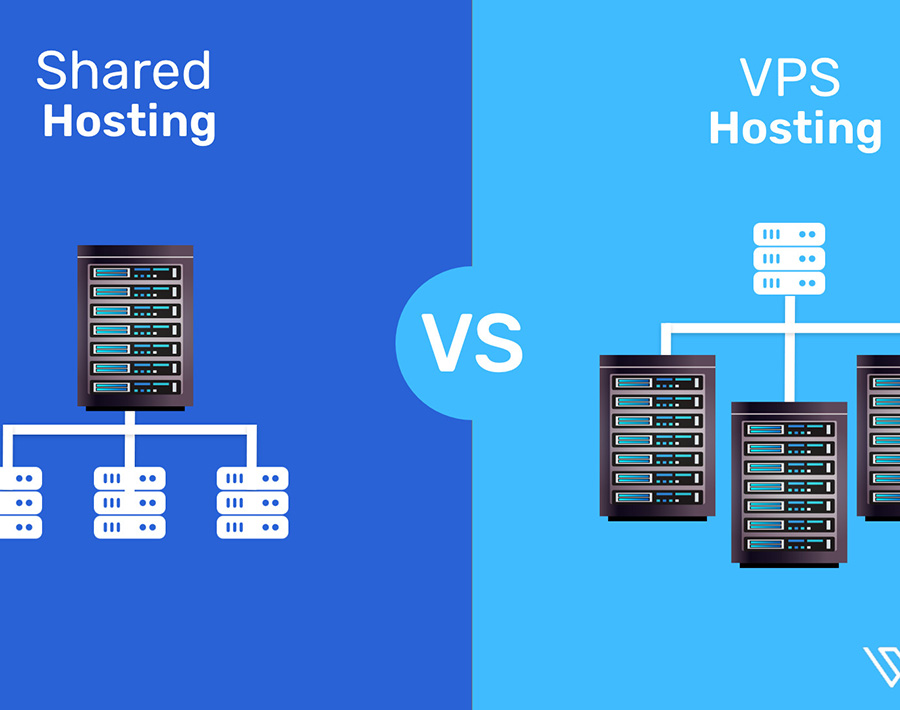In recent years, I have closely followed the development trends of website hosting (Hosting), VPS (Virtual Private Server), and cloud technology. As internet applications continue to expand—from small blogs to large e-commerce platforms, from individual projects to enterprise-level systems—the role of hosting has become more than just “storing website files.” It directly affects website performance, user experience, data security, and business value. Through testing and using various hosting solutions, I have formed some observations and insights about future trends that I’d like to share.
1. The Current State and Challenges of the Hosting Industry
The hosting industry has entered a highly competitive phase. Shared Hosting, VPS, Dedicated Servers, Cloud Hosting, and Managed VPS coexist, each with distinct characteristics:
- Shared Hosting: Low cost, suitable for beginners or small websites, but performance is limited and affected by other users.
- VPS: Balances cost and performance, allowing users to customize the environment; ideal for medium-sized sites or developers.
- Dedicated Servers: Exclusive resources, optimal performance, but expensive; suitable for large enterprises or high-traffic websites.
- Cloud Hosting: Elastic scaling, distributed architecture, high stability; ideal for rapidly growing sites and peak traffic scenarios.
- Managed VPS: Combines VPS flexibility with hassle-free management, suitable for users without technical expertise.
Through testing, I found that performance differences among many hosting solutions are becoming minimal. The real differentiators are stability, scalability, and technical support. Additionally, with global user behavior evolving, website loading speed and security have become more important than price. For a tech review website, slow page load or sluggish image rendering directly impacts user experience and the credibility of content.
2. The Evolution and Future of VPS
VPS technology has provided an optimal balance between cost and performance for small and medium-sized websites since its inception. Unlike shared hosting, VPS allocates independent resources, preventing site crashes caused by other users’ traffic.
In recent years, I have observed several key trends in VPS development:
- The Rise of Managed VPS
Traditional VPS requires technical knowledge such as SSH, system updates, and resource monitoring. Increasingly, providers offer Managed VPS, handling maintenance, backups, and security, allowing users to focus on content and business. For a tech review site like mine, Managed VPS greatly reduces operational overhead and enhances website stability. - Elastic Resource Allocation
With fluctuating traffic, VPS solutions increasingly offer on-demand CPU, memory, and storage scaling. Websites can automatically expand during peak traffic and shrink during low usage periods, optimizing costs. - Integration with Cloud Technology
VPS is no longer isolated; many VPS products now leverage cloud architecture. This hybrid approach combines VPS independence with cloud elasticity, ensuring dedicated resources while automatically redistributing load across cloud nodes when necessary.

3. Innovations in Cloud Hosting
Among all hosting types I’ve tested, Cloud Hosting left the deepest impression. It not only addresses performance issues during traffic surges but also excels in data security, backups, distributed storage, and global access speed. I foresee several developments in the next few years:
- Global Distribution
To meet global user needs, Cloud Hosting will emphasize worldwide node deployment. Websites will no longer rely on a single server location; smart routing will allow users to access the nearest node, significantly reducing latency. - AI-Driven Resource Optimization
With AI technology, cloud systems can predict traffic spikes, automatically allocate bandwidth and server resources, improving response speed and stability. This is critical for content-heavy sites with frequent product reviews, images, and videos. - Integrated Security Protection
Cloud Hosting increasingly integrates firewalls, DDoS protection, SSL management, automated backups, and recovery, creating a “zero-intervention” security system. Even in the event of attacks or failures, sites can recover quickly, ensuring data safety and business continuity.
4. Trends in Smart and Automated Hosting
Advances in technology are driving hosting toward greater intelligence and automation:
- Automated Monitoring
Real-time monitoring detects anomalies and initiates automatic remediation. - One-Click Deployment and Migration
Visual panels allow deployment, migration, and environment updates without complex procedures. - Intelligent Performance Optimization
Systems automatically adjust caching, database performance, and static file distribution based on traffic patterns, improving load times.
These trends make website management easier, allowing creators and businesses to focus on content and operations without worrying about technical details.
5. The Importance of Security and Privacy
In future hosting, security and privacy protection will be central. With increasing data breaches and cyberattacks, hosting security will become a core competitive factor.
I’ve found that services with multi-layer protection, automatic backups, and regular security updates significantly reduce risks. Compliance management (e.g., GDPR, CCPA) will also be a crucial consideration. Hosting providers are likely to offer proactive compliance tools and security reporting, making site management more transparent and secure.
6. Implications for Tech Review Websites
For tech review websites, which are content-heavy and often see fluctuating traffic, several key hosting considerations arise:
- Prioritize Stability
Downtime or slow loading directly impacts user experience and content credibility. - Scalability and Elasticity
Automatic resource scaling during traffic peaks saves costs during low traffic periods. - Security Assurance
Firewalls, DDoS protection, SSL certificates, and automatic backups safeguard content and user data. - Ease of Management
Managed VPS or cloud hosting reduces operational pressure, allowing more focus on content creation and product testing.

7. Hosting Trends Over the Next Five Years
Based on market observation and testing, I predict the following hosting trends:
- Hybrid Architectures: Combining VPS, cloud hosting, and dedicated servers to meet diverse needs.
- Intelligent Management: AI-assisted resource allocation, performance optimization, security monitoring, and anomaly remediation.
- Global Distribution: Optimized worldwide nodes to improve cross-region access speed.
- Security and Compliance: Automated updates, protective systems, and privacy compliance tools as standard features.
- Service Transparency: Clear SLAs, performance reports, and billing structures to help users evaluate ROI.
8. Hosting as a Foundation for Long-Term Website Success
Many people see hosting as just a cost of building a website, but I view it as an invisible investment in long-term stability and performance. High-quality hosting improves load speed, ensures data security, enhances user experience, and provides sustainable growth potential.
Whether VPS, Java Hosting, Cloud Hosting, or Managed VPS, each represents a different technical path and use case. In the future, intelligent, automated, globalized, and secure hosting solutions will transform website management, allowing creators and businesses to focus on content and growth without being hindered by technical constraints.
Choosing a reliable, flexible, and secure hosting solution is the prerequisite for long-term website success. Hosting is not merely a technical support system—it is the cornerstone of digital-era website achievement.



















+ There are no comments
Add yours